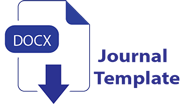Financial Statement Fraud Detection: Synergy Artificial Intelligence with Auditor Characteristics
Abstract
The objective of this research is to analysis the effect of auditor characteristics that represented by professional scepticism and auditor experiences toward financial statement fraud detection through artificial intelligence in data analytic. This study builds upon previous research where respondents were auditors who had used big data analytics and incorporate artificial intelligence, specifically big data analytic as mediator between auditor characteristics and the detection of financial statement fraud. Quantitative research was used in this research by obtaining primary data through 66 respondents from auditor at several public accounting firms in the Jakarta area. Our findings reveal that auditor experience has direct influence effect on financial statement fraud detection while professional scepticism has no effect. But surprisingly, the role of artificial intelligence in data analytics is only able to mediate professional scepticism on financial statement fraud detection, while this does not apply to auditor experience. This study provides empirical evidence that the role of artificial intelligence, namely big data analytic, can act as a catalyst that transforms professional scepticism from mere doubt to evidence-based action, by enhancing the auditor’s ability to identify data patterns and anomalies, reducing cognitive bias and increasing objectivity.
Keywords
Full Text:
PDFReferences
Aboud, A., & Robinson, B. (2022). Fraudulent financial reporting and data analytics: an explanatory study from Ireland. Accounting Research Journal, 35(1), 21–36. https://doi.org/10.1108/ARJ-04-2020-0079
Akbar, A., Ermawati, Y., Suratini, S., Pasolo, F., & Sutisman, E. (2022). The Effect of Audit Risk and Workload on Fraud Detection Through Auditor Professional Skepticism. Atestasi : Jurnal Ilmiah Akuntansi, 5(2), 567–581. https://doi.org/10.57178/atestasi.v5i2.355
Barr-Pulliam, D., Brazel, J. F., Mccallen, J. B., & Walker, K. (2024). Data Analytics and Skeptical Actions: The Countervailing Effects of False Positives and Consistent Rewards for Skepticism. https://doi.org/https://dx.doi.org/10.2139/ssrn.3537180
Brown-Liburd, H., Issa, H., & Lombardi, D. (2015). Behavioral implications of big data’s impact on audit judgment and decision making and future research directions. Accounting Horizons, 29(2), 451–468. https://doi.org/10.2308/acch-51023
Cassel, C. A., Dearden, S. M., Rosser, D. M., & Shipman, J. E. (2022). Confirmation Bias and Auditor Risk Assessments: Archival Evidence. AUDITING: A Journal of Practice & Theory, 41(3).
Citranagari, M. P. (2022). The Effect of Professional Skepticism, Experience of Investigative Auditors and Whistleblowing System on Auditor’s Ability in Detecting Fraud. Journal Research of Social Science, Economics, and Management, 2(1), 72–82. https://doi.org/10.36418/jrssem.v2i1.219
Diolas, A. (2022). Professional Scepticism And Cognitive Biases: Lessons Learned From Inspections Findings. ACCA & HAASOB. www.accaglobal.com/gb/en/professional-insights.html
Elder, R. J., Beasly, M. S., Hogan, C. E., & Arens, A. A. (2020). Auditing and Assurance Services : International Perspective (Issue 1). Pearson.
Faroukhi, A. Z., El Alaoui, I., Gahi, Y., & Amine, A. (2020). Big data monetization throughout Big Data Value Chain: a comprehensive review. Journal of Big Data, 7(1). https://doi.org/10.1186/s40537-019-0281-5
Gepp, A., Smith, T., & Linnenluecke, M. K. (2016). Big Data in Accounting and Finance : A Review of Influential Publications and a Research Agenda. October, 1–43.
Ghozali, I. (2021). Partial Least Squares : Konsep, Teknik dan Aplikasi Menggunakan Program SmartPls 3.2.9 untuk Penelitian Empiris. Fakultas Ekonomi dan Bisnis Universitas Diponegoro.
Hamdam, A., Jusoh, R., Yahya, Y., Abdul Jalil, A., & Zainal Abidin, N. H. (2022). Auditor judgment and decision-making in big data environment: a proposed research framework. Accounting Research Journal, 35(1), 55–70. https://doi.org/10.1108/ARJ-04-2020-0078
Handoko, B. L., Rosita, A., Ayuanda, N., & Budiarto, A. Y. (2022). The Impact of Big Data Analytics and Forensic Audit in Fraud Detection. 2022 12th International Workshop on Computer Science and Engineering, WCSE 2022, 67–71. https://doi.org/10.18178/wcse.2022.06.011
Hezam, Y. A. A., Anthonysamy, L., & Suppiah, S. D. K. (2023). Big Data Analytics and Auditing: A Review and Synthesis of Literature. In Emerging Science Journal (Vol. 7, Issue 2, pp. 629–642). https://doi.org/10.28991/ESJ-2023-07-02-023
Huang, F., No, W. G., Vasarhelyi, M. A., & Yan, Z. (2022). Audit data analytics, machine learning, and full population testing. Journal of Finance and Data Science, 8, 138–144. https://doi.org/10.1016/j.jfds.2022.05.002
Hurtt, R. K. (2010). Development of a scale to measure professional skepticism. Auditing, 29(1), 149–171. https://doi.org/10.2308/aud.2010.29.1.149
Iftinan, S. H., & Sukarmanto, E. (2022). Pengaruh Pengalaman Auditor dan Kompetensi terhadap Pendeteksian Kecurangan Laporan Keuangan. Jurnal Riset Akuntansi, 1–7. https://doi.org/10.29313/jra.v2i1.666
Indriyani, S., & Luqman Hakim, dan. (2021). Pengaruh Pengalaman Audit, Skeptisme Profesional Dan Time Pressure Terhadap Kemampuan Auditor Mendeteksi Fraud. Jurnal Akuntansi Dan Governance, 1(2). http://jurnal.umj.ac.id/index.php/jago
Karran, A. J., Demazure, T., Hudon, A., Senecal, S., & Léger, P. M. (2022). Designing for Confidence: The Impact of Visualizing Artificial Intelligence Decisions. Frontiers in Neuroscience, 16. https://doi.org/10.3389/fnins.2022.883385
Louwers, T. J., Blay, A. D., Sinarson, D. D., Strawser, J. R., & Thibodeau, J. C. (2024). Auditing & Assurance Services (9th ed.). McGraw Hill.
Mannuela, C., & Kurniawati, K. (2024). Komite Audit Memoderasi Pengaruh Asimetri Informasi, Leverage Dan Kinerja Keuangan Terhadap Manajemen Laba. Jurnal Aplikasi Akuntansi, 9(1), 17–33. https://doi.org/10.29303/jaa.v9i1.414
Mousa, A., Abdullah, A., & Omar, Z. (2022). The Impact of Big Data Analytics on Audit Procedures: Evidence from the Middle East. Journal of Asian Finance, 9(2), 93–0102. https://doi.org/10.13106/jafeb.2022.vol9.no2.0093
Mpofu, F. y. (2023). The application of Artificial Intelligence in external auditing and its implications on audit quality? A review of the ongoing debates. International Journal of Research in Business and Social Science (2147- 4478), 12(9), 496–512. https://doi.org/10.20525/ijrbs.v12i9.2737
Natalia, L. N. K., & Latrini, Y. M. (2021). Dampak Pengalaman, Skeptisisme Profesional, dan Kompetensi pada Kemampuan Auditor dalam Mendeteksi Kecurangan. E-Jurnal Akuntansi.
Noordin, N. A., Hussainey, K., & Hayek, A. F. (2022). The Use of Artificial Intelligence and Audit Quality: An Analysis from the Perspectives of External Auditors in the UAE. Journal of Risk and Financial Management, 15(8). https://doi.org/10.3390/jrfm15080339
Rafnes, M., & Primasari, N. H. (2020). Pengaruh Skeptisisme Profesional, Pengalaman Auditor, Kompetensi Auditor, dan Beban Kerja terhadap Pendeteksian Kecurangan. Jurnal Akuntansi Dan Keuangan, 9(1), 16–31.
Rahmani, A. M., Azhir, E., Ali, S., Mohammadi, M., Ahmed, O. H., Ghafour, M. Y., Ahmed, S. H., & Hosseinzadeh, M. (2021). Artificial intelligence approaches and mechanisms for big data analytics: a systematic study. PeerJ Computer Science, 7, 1–28. https://doi.org/10.7717/peerj-cs.488
Ranzilla, S., Chevalier, R. E., Herrmann, G., & Glover, S. M. (2011). Elevating Professional Judgment in Auditing and Accounting: The KPMG Professional Judgment Framework. KPMG LLP.
Santoso, L. C., & Yanti, H. B. (2025). Pengaruh Kompetensi, Pengalaman, Dan Skeptisme. Al Qalam: Jurnal Ilmiah Keagamaan Dan Kemasyarakatan, 19(1).
Sari, R., & Andrian, S. (2023). The influence of professional skepticism, auditor’s experiences, and competency on fraud detection. International Journal of Research in Business and Social Science (2147- 4478), 12(3), 384–390. https://doi.org/10.20525/ijrbs.v12i3.2569
Sari, Y., & Kurniawati, K. (2021). Apakah Skeptisisme Profesional, Kompleksitas Tugas Dan Teknik Audit Berbantuan Komputer Berdampak Terhadap Kualitas Audit? Ultima Accounting, 13, 238–256.
Sathisha, & Sowmya. (2023). Detecting Financial Fraud in the Digital Age: The AI and ML Revolution. International Journal for Multidisciplinary Research, 5(5). www.ijfmr.com
Setiadarma, V., & Kurniawati, K. (2024). Pengaruh Independensi, Kompetensi, Kompleksitas Tugas Dan Skeptisisme Profesional Terhadap Audit Judgment. In BALANCE VACATION ACCOUNTING JOURNAL.
Shoetan, P. O., Oyewole, A. T., Okoye, C. C., & Ofodile, O. C. (2024). Reviewing The Role Of Big Data Analytics In Financial Fraud Detection. Finance & Accounting Research Journal, 6(3), 384–394. https://doi.org/10.51594/farj.v6i3.899
Sihombing, R. P., Narsa, I. M., & Harymawan, I. (2023). Big data analytics and auditor judgment: an experimental study. Accounting Research Journal, 36(2–3), 201–216. https://doi.org/10.1108/ARJ-08-2022-0187
Suriani, S., Abubakar, H., Nur, I., Selamet, S., & Abustan, A. (2023). Antecedents of Professional Skepticism, Auditor Experience, and Time Pressure in Fraud Detection. International Journal of Advanced Engineering Research and Science, 10(9), 16–26. https://doi.org/10.22161/ijaers.109.3
Tang, J., & Karim, K. E. (2019). Financial fraud detection and big data analytics – implications on auditors’ use of fraud brainstorming session. Managerial Auditing Journal, 34(3), 324–337. https://doi.org/10.1108/MAJ-01-2018-1767
Wahidahwati, W., & Asyik, N. F. (2022). Determinants of Auditors Ability in Fraud Detection. Cogent Business and Management, 9(1). https://doi.org/10.1080/23311975.2022.2130165
Wahyudi, G., & Qintharah, Y. N. (2023). Pengaruh Profesionalisme, Pengalaman, Risiko Audit, dan Keahlian Audit terhadap Pendeteksian Kecurangan. PETA, 8(1).
Wilson, B. (2024). Data analytics and visualization in the audit. Journal of Accountancy.
Karim, A. K. A., Young, F. C. Y. F. C., Purnamasari, Y. F. P. Y. F., Febrianto, H. G. F. H. G., Zatira, D. Z. D., & Fitriana, A. I. F. A. I. (2025). THE MODERATING EFFECT OF PROFITABILITY ON DIVIDEND POLICY IN INDONESIAN INFRASTRUCTURE COMPANIES. JRAK, 17(1), 159-174.
Febrianto, H. G., Pambudi, J. E., Sunaryo, D., Fitriana, A. I., & Dehavilan, S. (2025). Tax Avoidance And Green Accounting In Increasing Firm Value And CSR Practices In Indonesia. Jurnal Reviu Akuntansi dan Keuangan, 15(1).
Ulfa, E. K., Suprapti, E., & Latifah, S. W. (2021). The effect of ceo tenure, capital intensity, and firm size on tax avoidance. Jurnal Reviu Akuntansi dan Keuangan, 11(1), 77-86.
Febrianto, H. G., & Pambudi, J. E. (2024). CEO Dualism and Corporate Value: A Digital Corporate Governance Perspective. Jurnal Reviu Akuntansi dan Keuangan, 14(4), 912-932.
Hamdani, H., Febrianto, H. G., Fitriana, A. I., & Nurholisoh, N. (2024). Determinan Struktur Modal Antara Tangibility, Sales Growth, Business Risk, Dan Operating Leverage Pada Perusahaan Property Dan Real Estate. Balance Vocation Accounting Journal, 8(2), 214-227.
Hamdani, H., Abbas, D. S., Hidayat, I., & Mohamad, N. (2025). Analysis Of Factor Affecting Financial Distress Moderated By Institutional Ownership. Jurnal Reviu Akuntansi dan Keuangan, 15(1).
DOI: http://dx.doi.org/10.31000/bvaj.v9i1.14054
Article Metrics
Abstract - 1801 PDF - 732Refbacks
- There are currently no refbacks.
Jurnal ini telah terindeks dalam:
Balance Vocation Accounting Journal is licensed under a Creative Commons Attribution-ShareAlike 4.0
View BVAJ Stats

.jpg)





